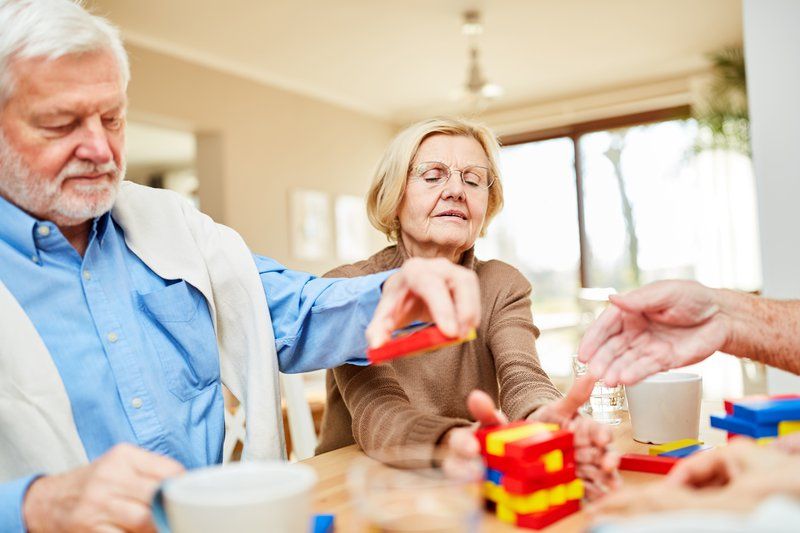
Why is social engagement crucial for seniors’ well-being in assisted living communities? Social interactions play a vital role in enhancing seniors’ mental and emotional health and occupational therapy can assist with this. Regular engagement with peers and caregivers can significantly reduce feelings of isolation and depression, leading to improved overall well-being. In assisted living settings, fostering these connections is essential for maintaining a high quality of life.
The Role of Occupational Therapy in Improving Social Skills
Occupational therapy plays a pivotal role in enhancing social skills among seniors in assisted living communities. Therapists employ a variety of strategies to foster social engagement, ensuring that each resident can participate meaningfully in community life. Group activities are a cornerstone of this approach, providing structured opportunities for seniors to interact, share experiences, and build relationships. These activities can range from art classes and book clubs to gardening and exercise groups, all designed to encourage communication and collaboration.

Personalized therapy plans are also integral to the success of occupational therapy in this context. Each senior’s needs and preferences are unique, and therapists tailor their interventions accordingly. This individualized approach ensures that therapy is both relevant and effective, addressing specific challenges and leveraging each resident’s strengths. Personalized plans may include one-on-one sessions focused on particular social skills, as well as recommendations for activities that align with the senior’s interests and abilities. Through these targeted efforts, occupational therapy helps seniors thrive socially, enhancing their overall quality of life.
Boosting Communication Skills
Occupational therapy significantly enhances seniors’ communication skills, which are crucial for effective social engagement. Speech exercises form a fundamental part of this process. Therapists guide seniors through targeted activities designed to improve articulation, fluency, and vocal strength. These exercises not only help in clearer speech but also boost confidence, enabling seniors to participate more actively in conversations.
Communication aids also play a vital role in supporting seniors with specific needs. These aids can range from simple tools like picture boards and flashcards to advanced technology such as speech-generating devices. Occupational therapists assess each senior’s unique requirements and recommend the most appropriate aids. By incorporating these tools into daily routines, seniors can overcome communication barriers and engage more fully with their community. This holistic approach ensures that every senior has the opportunity to express themselves and connect with others, enhancing their overall quality of life.
Integrating Occupational Therapy into Daily Senior Care Routines
Integrating occupational therapy into the daily routines of seniors in assisted living requires a strategic and collaborative approach. One practical method is to schedule regular therapy sessions that align with residents’ daily activities. For instance, incorporating speech exercises during meal times can provide a natural context for practicing communication skills. Similarly, group activities like morning exercise classes or afternoon art sessions can be designed to include social skills training, making therapy an integral part of the day.
Collaboration between caregivers and occupational therapists is essential for consistent and holistic care. Caregivers can be trained to reinforce therapy techniques throughout the day, ensuring that seniors receive continuous support. For example, caregivers can use communication aids recommended by therapists during interactions, helping residents practice and improve their skills. Regular meetings between caregivers and therapists can also facilitate the sharing of progress updates and adjustments to therapy plans, ensuring that each resident’s needs are met effectively.
Looking Ahead: Future Trends in Occupational Therapy for Seniors
Mindfulness-based occupational therapy, for example, focuses on reducing anxiety and improving mental clarity, which can significantly impact social interactions. Techniques such as guided meditation and breathing exercises help seniors manage stress, making them more open to engaging with others. This holistic approach addresses both the emotional and social aspects of well-being, providing a comprehensive solution to the challenges faced by seniors.

Ongoing research continues to uncover innovative methods to support seniors. Studies are exploring the benefits of animal-assisted therapy, where interactions with trained animals can boost mood and encourage socialization. Additionally, research into personalized therapy plans based on genetic and biometric data is paving the way for highly tailored interventions. These personalized plans can address specific needs more accurately, leading to better outcomes in social engagement and communication.
The Future of Social Engagement in Senior Living
Occupational therapy plays a crucial role in enhancing social engagement and communication skills among seniors in assisted living communities. Social engagement remains vital for seniors’ well-being, and Assured Senior Living is committed to providing personalized, holistic care solutions. Learn more about how we can enhance the quality of life for your loved ones.
Let us be the beacon of light for you as we personalize the experience and love for each of our residents. To learn more download our free Family Decision Toolkit guide for more information.


